Texas Senator Kelly Hancock’s Story

Living Donor Kidney Recipient
“No signs of possible rejection.”
In many ways, this phrase gave me my life back last month. Yes, this was a serious and potentially deadly disease. Yes, managing it posed significant obstacles. No, we wouldn’t let it slow us down.
For the next 25 years, we quietly followed doctors’ orders with a strict diet, some activity restrictions, and a lot of prayer, never knowing when a check-up would be the check-up where we learned my kidney function had fallen too low to continue living a normal life.
In the meantime, I focused on being a dad to our three kids and growing the small business I started with my brother. I decided to put every healthy day I had to good use and get more involved in our community, spending 13 years on the Birdville ISD school board, then throwing my hat in to run for the Texas Legislature.
Fast forward, and one particularly fortunate day at the Texas Capitol, my now-adult daughter Chloe met a young man named Greg who soon became my son-in-law. Right around the time they got engaged, the check-up finally came. We learned my kidney function was deteriorating more quickly, and dialysis was on the horizon. My diet became even more strict, and check-ups more frequent. Complications of the disease, like gout in my feet, became more common and more painful.
We managed to put it off longer than expected, but this time last fall, with the family, gathered for Thanksgiving, it was time for a very difficult conversation: dialysis was imminent, life was about to change significantly, and I needed to apply for the transplant list.
For those who don’t know, being added to the transplant waitlist is quite a process. You can’t get on it until your kidney function basically bottoms out, and most people are on dialysis for years before they’re considered bad enough to qualify for a deceased donor organ.
That’s because there are many more Texans waiting for a transplant than there are deceased-donor organs available.
I was always a pretty active guy, but one day in my mid-twenties, I noticed some odd symptoms after a game of racquetball and decided to go get checked out.
My doctor ran just about every test in the book, eventually discovering that I had a rare genetic disease called immunoglobulin A (IgA) nephropathy, an autoimmune disease that breaks down kidney cell structure.
The diagnosis raised as many questions as it answered. When would my kidneys fail? When would I need dialysis or a transplant? How would this impact my ability to work? Exercise? Eat?
As a young couple with a newborn, my wife Robin and I had to face the unknown and determine how to approach the diagnosis together.
The other transplant route is live donation. Kidneys are miraculous organs, and many healthy adults can donate one kidney and their other will pick up the slack.
Knowing this, my family immediately all asked to be tested as a live-donor match. It was a humbling day.
When the test results came back, we were extremely surprised to learn it wasn’t a blood relative, but my son-in-law, Greg, who was the ideal donor.
On July, Greg and I showed up to the hospital bright and early and underwent seamless procedures under the care of skilled surgeons. Greg was discharged the next day, and I went home the day after that to begin a quarantine and recovery process as my body adjusted to its new organ with the help of medications I’ll need to take permanently.
That brings me back to the powerful words I finally heard last month: “No signs of possible rejection.”
Today, with a healthy organ that my body has seemingly accepted, I have a new lease on life, and Robin and I couldn’t be more grateful for the gift of healthy years to come with our growing family.
Physically, I have more energy than ever.
But I also feel more compelled than ever to open up about this journey and do what I can to raise awareness about the opportunity many of us have to give the gift of life to a fellow Texan.
In less than the time it took to read my story, you can visit donatelifetexas.org to make sure, or even give them a call to learn more about the possibility of live donation.
Organ donation is a critical need for our state, but in this season of gratitude and giving, it’s one we can meet head-on if we work together and look out for one another.
Right now, nearly 10,000 Texans need an organ, with more than 80% of that need to be attributed to kidneys.
All of our kids are married now, and we have three grandkids – hard to imagine anything better.
